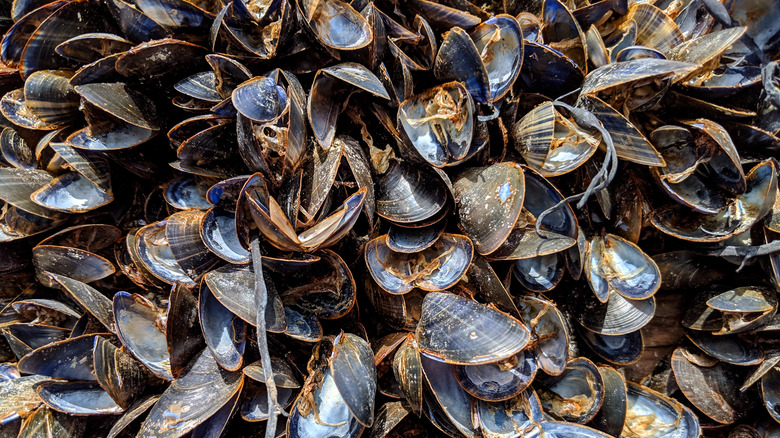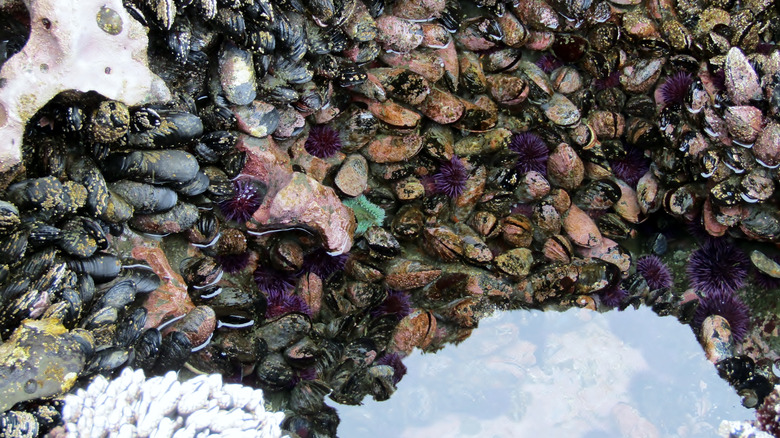The Shocking Amount Of Shellfish That Died During The Record-Breaking Heatwave
Scorching and sizzling. That's the best way to describe this stiflingly hot summer, particularly in the Pacific Northwest and areas of Canada. According to CBS News, this region, which is stereotypically rainy and cool, "endured the most extraordinary heat wave ever observed there in modern times." Portland, Oregon, shattered temperature records by reaching 116 degrees. For three consecutive days, Lytton, Canada "broke the nation's all-time record" by "topping out at 121 degrees." This blistering heat is increasing risk of death and wildfires, and highlighting the ever-present perils of climate change. "British Columbia reported at least 719 people suffered 'sudden and unexpected deaths,' three times more than what would normally occur in the province during a seven-day period" (via The Washington Post). If you are looking for foods you should avoid eating amid this hot weather wave, look no further.
Unfortunately, the impact of this alarming weather isn't limited only to humans. The record-breaking heat wave that has been roasting the region resulted in the mass death of millions of sea creatures along the coast of Vancouver, British Columbia.
The death of these sea creature will have far-reaching consequences for the environment
Vancouver beach visitors seeking relief from the sweltering heat were shocked by the scene and smell they encountered by the Salish Sea coastline. Millions of dead shellfish lay cooking in the sun, wiped out by the deadly heat. Christopher Harley, a marine biologist at the University of British Columbia, estimates up to 1 billion sea creatures, including mussels, clams, and snails, were killed (via The Washington Post).
Shellfish are not fragile creatures. According to Eater, "mussels have evolved to withstand high temperatures — they hold water inside their shells to prevent from drying out, and live in beds, or clusters which ordinarily help to protect the collective against the heat." But even these tough bivalves couldn't compete with the high temperatures, which combined with the low tides, created a truly fatal combination.
"A mussel on the shore in some ways is like a toddler left in a car on a hot day," says Harley, in an interview with CBS News. "They are stuck there until the parent comes back, or in this case, the tide comes back in ... They're at the mercy of the environment."
Shellfish help keep the oceans clean by filtering seawater and are a major source of food for larger animals, such as migrating seabirds. The loss of so many shellfish all at once could create dire issues in the food chain. These shellfish casualties will also affect the local seafood and fishing industries, as the typical life cycle of a mussel takes two to three years.

